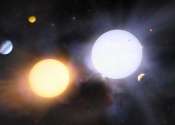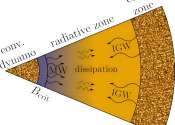Citizen scientists help discover record-breaking exoplanet in binary star system
A team of astronomers and citizen scientists has discovered a planet in the habitable zone of an unusual star system, including two stars and potentially another exoplanet.









